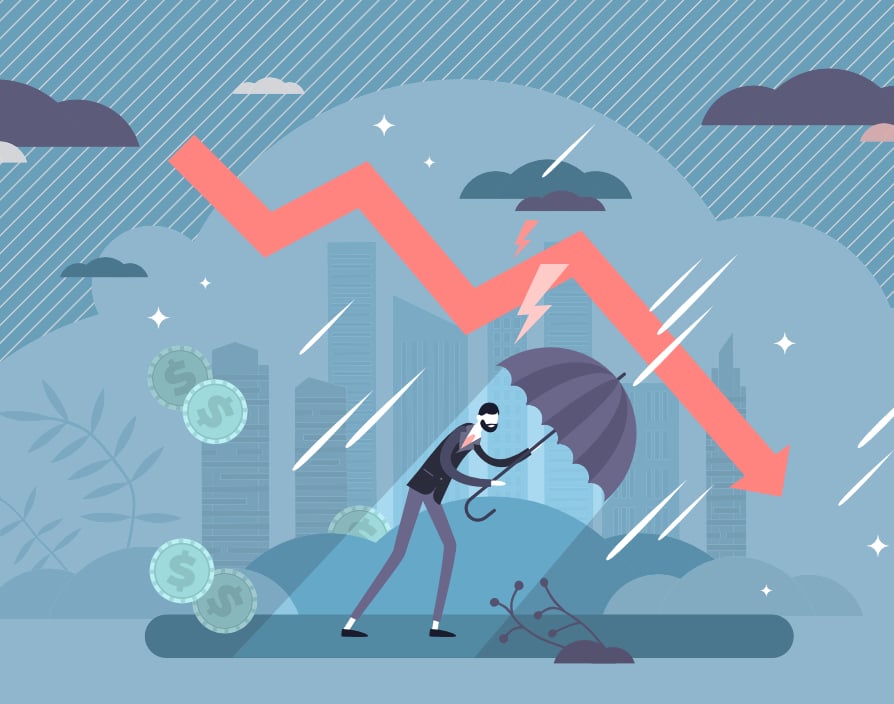The worst-kept secret in the country is out – the UK economy has entered what some economists are terming a ‘mega recession’ – a term that didn’t exist previously but had to be created to describe this country’s current predicament.
The country’s economic nosedive resulted in a 20.4% drop in GDP between April and June. This was a record drop for the country and the worst drop among the G7. In response to these findings, the Chancellor admitted that the Government was ‘grappling with something that is unprecedented’, before adding his catchphrase line that he’ll do ‘whatever it takes’ to support businesses.
As restrictions continue to loosen, we’ve put some thought to the key lessons and watch outs for the Government should we enter another national lockdown.
The Government needs to provide consistent messaging
If the Chancellor is truly committed to doing ‘whatever it takes’ to support businesses, then he must force the Government to get a handle on its messaging. A recession has consistently been predicted since Boris Johnson ordered the UK indoors on March 23rd. But, frighteningly, an unprecedented collapse in GDP and doomsday economic prophecies have been the only consistent message coming from the Government since the crisis began.
It’s been almost five months since Boris Johnson announced the UK’s lockdown, and yet the Government’s messaging has tended to be confusing and contradictory. The latest example of this being the threat to close pubs if schools reopen ‘ which came less than a month after the Chancellor announced the ‘Eat out to help out’ scheme to ‘support restaurants and the people who work in them’. Worse still, this ill-thought-out threat to close pubs and restaurants comes while the furlough scheme is winding down, putting business owners in an impossible position of having to second guess Government policy in deciding whether to make redundancies.
The Government must realise that words have consequences and that their inconsistent messaging is creating a cycle of uncertainty, which is the biggest risk to businesses. Although entering a lockdown made a recession inevitable, the Government still has the chance to impact how long and vast this recession will be. They need to urgently support businesses, get workers back into their offices and encourage customers to spend again. That is only achieved by consistent, coherent and positive messaging.
The Government needs to incentivise private investors
Consistent messaging is the first step the Government needs to take to bring stability to the economy, but it is not the last. The Government must also look to urgently shift the onus on supporting SMEs from the Treasury to private investors. It is not feasible for the Government to continue ploughing money into the economy to support businesses ‘ it will only lead to further debt and more uncertainty in the future.
A temporary tax relief scheme similar to SEIS and EIS could help encourage private investors to take on some of the risk of the recovery, as both measures offer individual investors substantial tax relief of up to 50% of their investments. Yet, many SMEs in need of investment will not be eligible for SEIS and EIS in its current form.
Creating a temporary scheme that is similar to SEIS or EIS, but tailored to start-ups unable to access the Government’s relief schemes ‘ such as the Future Fund ‘ and ineligible for SEIS and EIS may encourage investors to support struggling start-ups and help prevent further insolvencies among businesses that were prospering pre-COVID-19.
The need to encourage entrepreneurialism at schools
Another factor set to impact the economy is the looming drop in teenagers pursuing further education.
As a result of the pandemic, a generation of teenagers has essentially lost a year of education. Although this may not sound overly significant, it could be the difference between some staying on to do their A-Levels or not ‘ notably, the number of students doing A-Levels has plummeted in certain areas, with only 2% of teenagers in Knowsley opting to stay on for sixth form Those teenagers leaving school will be entering a job market with record high unemployment.
As job opportunities become scarcer and we plunge deeper into a recession, more people will likely look to set up their own businesses. However, a desire to be entrepreneurial isn’t equal across the country, with the North East and West Midlands recently being ranked as the UK’s ‘least entrepreneurial’ regions.
The lack of entrepreneurial spirit in some regions can be put down to a lack of encouragement in schools. If you are from a white middle-class background, then becoming an entrepreneur is something you may seriously consider. But if you’re not, then you may see it as an option or believe that it is something for which you have the necessary skills. The Government needs to address this and level up education across the country so any school leaver at 16 has the basic skills and confidence to start their own business and contribute to the economy.
The Government has done some brilliant things to safeguard jobs and keep the economy turning during lockdown. Many businesses would have been completely lost without the introduction of the furlough scheme, and while ‘Eat out to help out’ clashes with the Government’s obesity policy, it has given a much needed to boost to hospitality businesses. But criticism needs to be levelled at the Government’s inconsistent approach to communications and its inability to tailor support schemes to encourage private sector investment. Hard lessons must be learnt, and if they’re not, there’s a risk the pandemic could push us even further into recession.
“
Share via:


















































